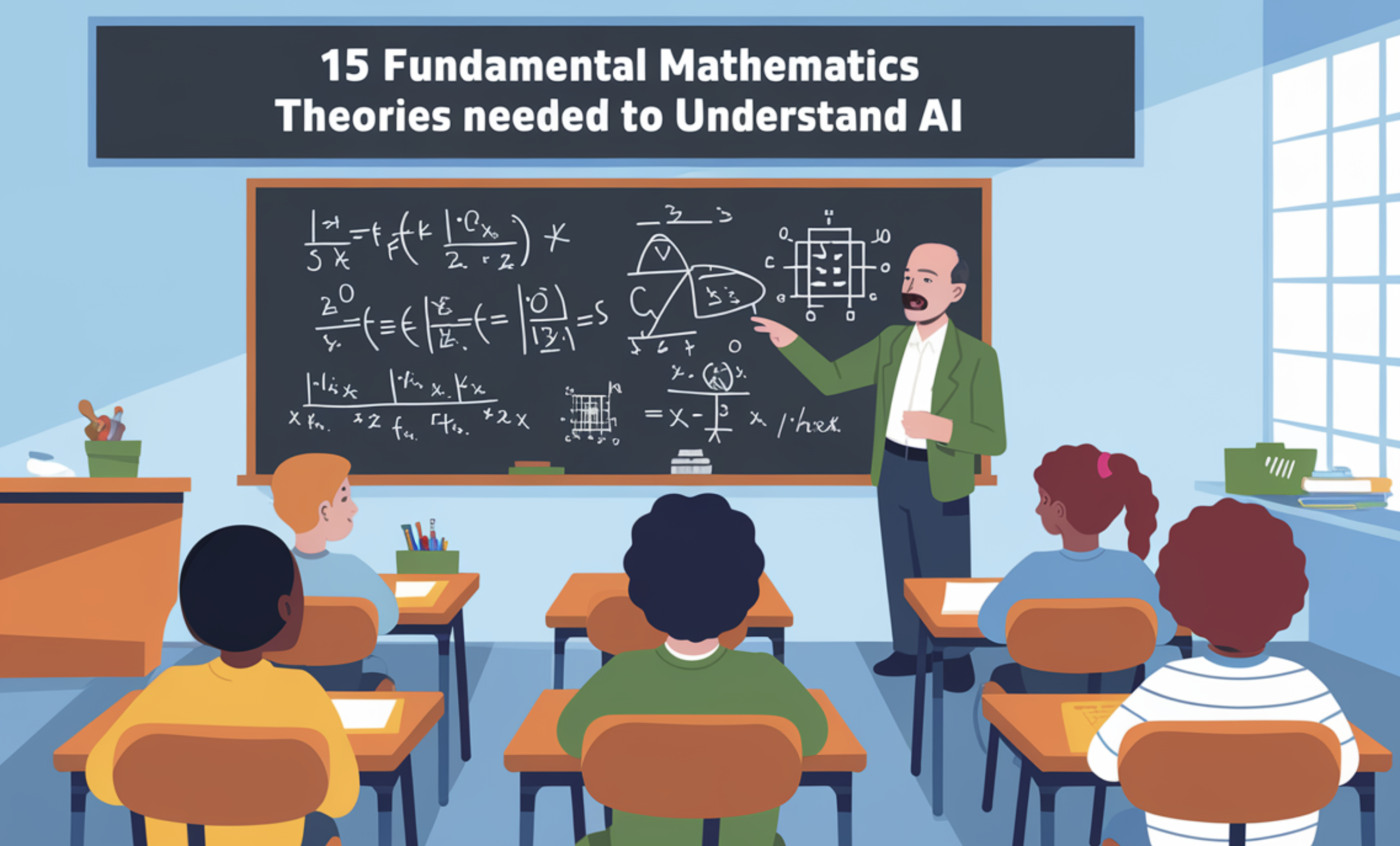
Mathematics – The Foundation of AI
Mathematics is essential for artificial intelligence (AI). It provides the tools needed to create intelligent systems that can learn, reason, and make decisions. Understanding key mathematical concepts is crucial for anyone interested in AI. Here are 15 important topics to know:
1. Linear Algebra
Linear algebra involves vectors and matrices, which are crucial for representing data in AI. Operations like addition and multiplication of matrices help simplify complex calculations, making data analysis easier.
2. Calculus
Calculus is vital for optimizing AI models. It helps in adjusting functions to minimize errors during training, particularly in neural networks through techniques like backpropagation.
3. Probability and Statistics
These concepts help AI systems manage uncertainty. They are key for making predictions and evaluating models, especially in recommendation systems and natural language processing.
4. Optimization
Optimization techniques, such as gradient descent, are used to efficiently train AI models and solve various problems, ensuring the best outcomes for AI applications.
5. Information Theory
This area helps us understand data processing limits. Concepts like entropy are used in AI for tasks such as feature selection and data compression.
6. Graph Theory
Graphs represent relationships between data points. Graph neural networks (GNNs) use this theory for applications in fields like drug discovery and social network analysis.
7. Set Theory
Set theory underpins formal logic and reasoning in AI. It helps in knowledge representation and decision-making, with fuzzy set theory allowing for nuanced interpretations of data.
8. Discrete Mathematics
This field focuses on distinct values and is important for counting and arranging data, useful in areas such as cryptography and error correction.
9. Game Theory
Game theory studies interactions among rational agents and is applied in AI for multi-agent systems and reinforcement learning, enhancing strategic decision-making.
10. Control Theory
Control theory helps design self-regulating systems, essential for robotics and automation, ensuring stability and efficiency in AI applications.
11. Numerical Methods
These methods approximate solutions to mathematical problems, helping optimize AI processes and improve data analysis.
12. Differential Equations
Differential equations model dynamic systems, crucial for understanding behaviors in robotics and image processing.
13. Fourier Analysis
This analysis is key for processing signals and images, making it useful in audio processing and compression tasks in AI.
14. Tensor Algebra
Tensors extend matrices to higher dimensions, enabling complex data representation in deep learning and machine learning applications.
15. Topology
Topology studies properties of shapes that remain unchanged, aiding in data interpretation and analysis tasks like image segmentation.
The Value of Understanding AI Mathematics
Grasping these mathematical concepts is essential for anyone looking to develop or work with AI systems. They provide the framework necessary for creating advanced AI solutions.
Transform Your Business with AI
To stay competitive, leverage these mathematical theories in your AI strategy:
- Identify Automation Opportunities: Find areas in customer interactions where AI can add value.
- Define KPIs: Ensure your AI projects have measurable goals.
- Select an AI Solution: Choose tools that fit your needs and allow for customization.
- Implement Gradually: Start small, gather insights, and scale up effectively.
For expert advice on AI KPI management, reach out to us at hello@itinai.com. For ongoing insights into AI applications, follow us on Telegram or Twitter @itinaicom.
Discover how AI can enhance your sales processes and customer engagement at itinai.com.



























